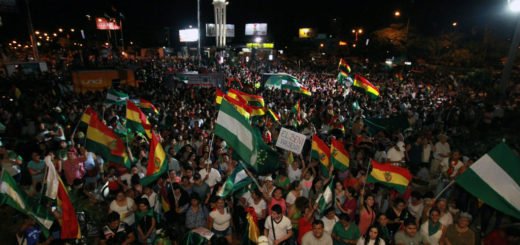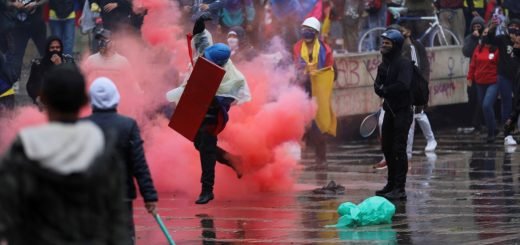Ecuador votes on re-election limits | Former president termed it as a ‘coup’
QUITO, Ecuador
Ecuadoreans this Sunday voted to reverse a 2015 constitutional amendment that abolished presidential term limits, a result broadly seen as strengthening the power of President Lenín Moreno while dealing a potentially fatal political blow to former President Rafael Correa.
The vote repeals an amendment put in place by Congress after intense prodding by Correa, who was president at the time, and who persuaded lawmakers to adopt the measure based on his promise not to run for office in 2017 — though he left the door open to running in 2021.
Moreno, a former vice president who was once a close ally of Correa’s, has become a staunch political opponent since assuming office last May. “With this vote, we will be able to work on our fight against corruption,” he said on Sunday after voting in favour of term limits in Quito, the capital.
The official Ecuador electoral agency announced the referendum’s passage on Sunday evening, declaring the results with “99 percent certainty.”
The result distances Ecuador’s electoral system from those of neighbours like Venezuela and Bolivia, where the left-wing leaders Evo Morales and Nicolás Maduro have entrenched themselves in power while still holding elections. Instead, Ecuador’s system moves closer to Colombia’s, which limits presidents to a single four-year term, and Peru’s, which allows re-election only if the terms are nonconsecutive.
Correa, who had been living in his wife’s native Belgium since last summer, returned to Ecuador last month to take an active role in campaigning against the referendum, calling it a “coup d’état” that would end “the rule of law” in the nation.
As he toured the country during the campaign, voters threw tomatoes and eggs at him on several occasions. In the western city of Quinindé, he had to be evacuated by helicopter after rocks and trash were thrown at his car — violence that Paola Pabón, a former senior official under Correa, charged as part of an effort led by Moreno to undermine his rival.
For his part, Correa said he considered the referendum a campaign against his political legacy. “They’re trying to destroy everything that has to do with Correa,” he told Reuters ahead of the vote.
Some voters said that was precisely their intention, and that they hoped to undo what they consider the failures of his government.
Jhonathán Usama, 26, who voted in favour of term limits, said he had been studying medicine at Universidad Cristiana Latinoamericana until Correa’s government shut it down along with 14 other schools, arguing that they were of poor quality.
¡Felicitaciones a todos nuestros militantes! NINGÚN movimiento por sí solo puede lograr el 36% alcanzado, peor en tan poco tiempo y en lucha tan desigual.
La lucha continúa. No podemos aceptar en un Estado de Derecho, tamaño rompimiento constitucional.
¡Hasta la victoria siempre!— Rafael Correa (@MashiRafael) February 5, 2018
Translation:
“Congratulations to all our activists! No movement in the Yes side can obtain the 36% we achieved, worse in such a short time and in such an unequal struggle.
The fight continues. We can not accept a break in constitutional order under rule of law. Always onward to victory!”
“We have to lay Correa to rest and not let him return, not just to the presidency but to the country,” Usama said after casting his vote in a school in Quito. “They closed my university without an adequate contingency plan, so I had to leave my family to go study somewhere else and start from scratch.”
The referendum — which included six other questions on matters like the environment and the penal code — was also seen as a move by Moreno to bolster his administration after he won the 2017 election by a narrow margin.
“This referendum is necessary so that we enact changes and in a way legitimize the current administration,” said Héctor Cevallos, a businessman who voted in the same school as Usama. “To do that we need to show they have public support.”
Cevallos said he had voted in favour of most issues on the ballot, but not those that would restrict mining and oil industries to protect the environment, which is part of Moreno’s agenda.
“The country needs economic resources to move forward and solve the problems of an economy that is currently in crisis,” Cevallos said.



















